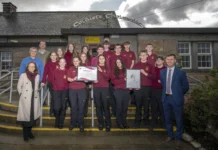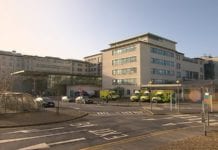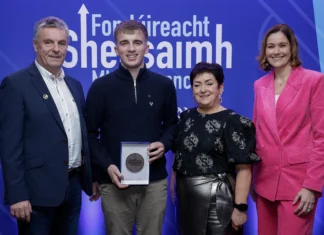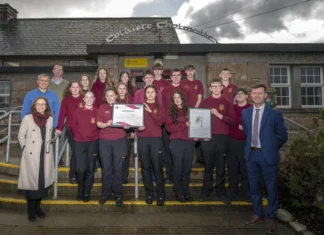Over five hundred delegates from 37 countries are gathered in Galway this week for the 7th EUGEO conference to talk about climate change and agriculture.
The theme for this year’s event is ‘Re-imagining Europe’s Future Society and Landscapes’, looking at the impact of climate change and how it is changing agriculture, energy production, and more.
This conference of the Association of Geographical Societies in Europe is taking place at NUIG this week up to Saturday, May 18 in conjunction with the 51st Conference of Irish Geographers.
Events taking place throughout the week will look at look at agriculture and climate change from the viewpoint of citizens, politics, behaviour change and climatology.
Researchers from NUIG’s Risk Aqua Soil project will host a session on ‘Agriculture and Climate Change’ on Thursday, May 16 from 3.45pm-5.15pm in the Human Biology Building.
Risk Aqua Soil is an ambitious EU project led by NUIG that aims to build more climate change resistant agriculture along the Atlantic coast.
Other events include sessions on ‘Historical Climatology’, what seasonal conditions in Ireland used to look like; the conservation of Irish peatland ecosystems; environmental monitoring and mapping; homelessness in the west of Ireland and more.
For full programme details and timetables at NUI Galway this week, visit: www.eugeo2019.eu/conference-schedule.
The week will include interactive panels, fieldtrips to the Burren, paper and poster sessions as well as early career networking events and international keynote contributions.
Conference chairs Dr Kathy Reilly and Dr Frances Fahy from the College of Geography and Archaeology said that it is an honour for NUIG to host this biennial event.
“We are delighted to welcome 500 national and international colleagues from all around the globe to this significant event.”
“Over the next three days we are looking forward to a vibrant and rich conference programme which will include cutting edge research exploring some of society’s pressing issues.”
The goal of the EUGEO conference is to examine crucial pressing issues of society, the environment and landscape withing the context of geography, and find how our physical and cultural landscapes are linked.
By doing so it’s hoped it will allow people to reflect on and re-imagine environmental and sustainable futures within the geographical boundary of Europe.














